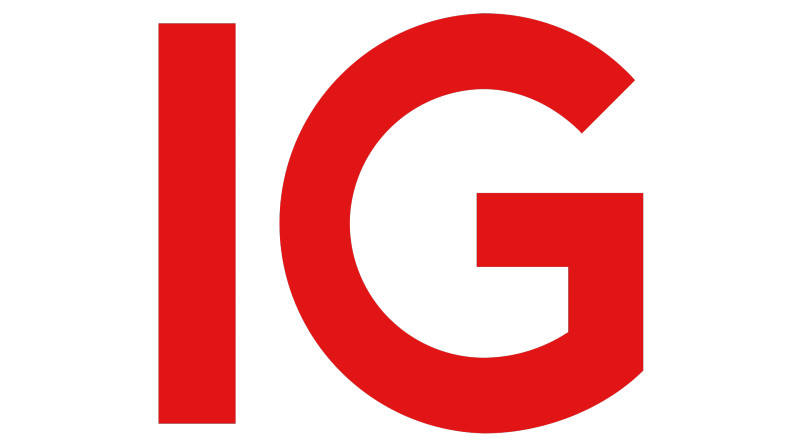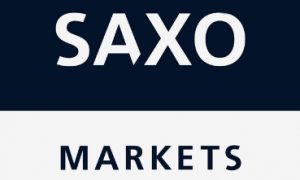Disclosure: Privacy Australia is community-supported. We may earn a commission when you buy a VPN through one of our links. Learn more.
Investing in the Bitcoin Futures ETF

The first futures-based bitcoin ETF made its way to the market this month, taking the market by storm. Just like all big announcements, this one caused Bitcoin shared to spike, hitting a high that was well over $62,000.
Though Bitcoin futures got clear approval from the Securities and Exchange Commission (SEC), expert market analysts are split down the middle of whether it’s a good time to invest.
Bitcoin is already a complicated market, so the question is, should you invest in Bitcoin futures?
Below, we’ll take a look at Bitcoin futures before going into some things that you should consider before you buy.
Table of Contents:
- Key Takeaways
- What Are Bitcoin Futures
- Bitcoin Futures Investing: What you Need to Know
- Things to Consider Before Trading Bitcoin Futures
- The Pros and Cons of Bitcoin ETFs
- Should you Invest in Bitcoin Futures ETFs
Key Takeaways
- Bitcoin futures allow investors to speculate about the value of the stock at a later date
- As an ETF, Bitcoin futures are available for trade within a number of brokers
- Bitcoin is considered a risky investment with its high volatility
What Are Bitcoin Futures?
Bitcoin futures are the perfect investment for those looking for Bitcoin exposure without having to hold any of the cryptocurrency. Classifying bitcoin futures as an ETF makes them tradable any time during market hours, unlike mutual funds. One of the key moneymaking properties of bitcoin futures is that they require speculation about the future price, whether it will be up or down from the current value. Additionally, instead of selling bitcoin, futures trading opens up the opportunity for cash settlement upon selling, selling their shares instead of selling their physical bitcoin.
You might have heard about bitcoin futures before, as there was an offering back in 2017. This continued for a few years, though it was discontinued in 2019. Now, they are here again, perhaps this time to stay.
Bitcoin Futures Investing: What you Need to Know
Bitcoin futures can benefit different traders in unique ways. They can serve as a way to lock in prices that will ensure a return on investment at a later date or to hedge against them in a spot market. These are two more advanced tactics that investors use, both of which bank highly on speculation.
Key Benefits
Perhaps one of the largest benefits is the fact that bitcoin futures are regulated by the Commodity Futures Trading Commission, which opens up the floor for large investors. Any time that large investors can get in on the market, individual investors can benefit. Bitcoin has been traded outside of a regulated market, increasing the risk of the already unsteady value. Now, its regulation makes it attractive to investors of all sizes.
Another key benefit is that, since bitcoin futures do not connect investors with physical bitcoin, they will not have to worry about having a bitcoin wallet to hold them in. A major risk with physical bitcoin is keeping it in a secure place where it is not exposed to major risks. On top of that, keeping the personal key somewhere where it cannot be lost or stolen is another big issue. Both of those increase the risk of holding bitcoin, which is eliminated when trading bitcoin futures.
How Bitcoin Futures ETFs Work
ETFs are nothing new to the market, becoming a popular option for traders and investors alike. ETFs, keep track of an asset or group of assets, fluctuating with them as they increase or decrease in value. ETFs gain a lot of traction with seasoned and rookie investors due to their ability to help them diversify their portfolios and increase the value of their overall investments without actually holding any physical assets themselves.
Combining ETFs with Bitcoin, investors have a unique option to be a part of the popular digital currency market without actually owning any bitcoin. Owning bitcoin is complicated but so too is trading it, which is why ETFs are a solid and recommended option.
How to Trade Them
If you’ve decided that bitcoin futures ETF is on your radar, here is a look at how you can start trading them. Unlike physical bitcoin, trading futures is a less complicated process that’s simple to pick up. Before you start, make sure that you have a brokerage account with an online broker.
Once you have your account set up and ready to go, then it’s time to take a look at the details before you execute a trade. Futures trading of all kinds banks on leverage, the difference between the buy and sell price. Some brokers offer a large margin of leverage while others cap it off at 20%.
Because futures ETFs are banking on futures, they rely heavily on the details of the contract set up at the time of purchase. Also, it depends on the margin, as higher-risk assets often require a higher margin. Before investing in an ETF, investors will need to pour over the details of the contract. Contracts should include trading hours, settlement method, margin requirements, and the contract unit.
An Example of Bitcoin Futures ETF
To better understand the process and the details, let’s look at an example. Let’s say that you purchase two futures contracts for 10 total bitcoin that have a combined value of $50,000 ($5,000 each). If your margin requirements are 50%, that means that you would need to invest $25,000 and choose to finance the rest using leverage.
The contract will have an end date, at which time the investor can decide to hold or expire, which is when they can collect the profits. With bitcoin futures, the investors do not own physical bitcoin, so there is no exchange of the asset upon contract completion. Instead, the settlement is cash, where investors get paid the difference in their investment amount.
Just like any investment, bitcoin futures ETFs are risky too and can fluctuate when things change in the market. One market change could send the value up while another could send it down, which is also a possibility. In that case, investors would not be able to collect a profit and could wind up paying the difference out of pocket.
Buy Into ETFs in 4 Simple Steps
- Find an online trading platform
- Create an account and, if applicable, download the app
- Add some funds to your account
- Find Bitcoin futures ETF and buy
Where to Trade Them
Before you start trading, you’ll need a brokerage account. Scoring one that has checked all the right boxes takes some time, as there are tons to choose from on the web.
To help narrow down your choices, we’ve included the best brokers that Aussies can join to start trading today.
1. eToro – The Best ETF Broker for Beginners
Key Specifications:
- Currency Conversion: 50 pips ($0.50 for every AU $100)
- Markets: US shares, ETFs
- Inactivity fee: $10/month after 12 months of inactivity
eToro is the perfect broker for beginners, coming with a long list of tools that are perfect to get started. With access to a demo account, educational resources, and analysis tools, it’s got all that traders need. One of their favorite features as per traders is copy trading, which allows investors to see what other investors are buying into and copy their every move. This is useful for new investors and could be a way for seasoned investors to change up their strategy.
2. IG – Lowest Brokerage Fees
Key Specifications:
- Currency Conversion: 0.70%
- Markets: ASX shares and global shares
- Brokerage fees: $0
- Inactivity fee: $50/quarter if there are less than 3 trades

IG doesn’t have brokerage fees and offers a discount for commissions on all Australian shares. It’s the perfect blend of advanced trading technology and access to several markets across the board, making it something that traders of all levels should try out. IG has one of the most advanced analytics platforms, which investors can use to take a look at the market and decide their next move.
3. Superhero – The Best Low-Cost Broker
Key Specifications:
- Currency Conversion: 50 pips ($0.50 for every AU $100)
- Markets: ASX shares and US shares
- Brokerage fees: $0
- Inactivity fee: $0

If you’re looking for a platform that is low-cost, Superhero is it. It has access to all kinds of markets, including the US where Bitcoin futures ETFs can be both bought and traded. There are no brokerage fees and trades come in at a small flat fee of just $5. Just because it doesn’t cost a lot to buy and trade with Superhero doesn’t mean they sacrifice on features, with several noteworthy features that traders of all levels can benefit from.
4. SelfWealth – The Best Broker for Flat Free Trades
Key Specifications:
- Currency Conversion: 0.60%
- Markets: US shares and ASX shares
- Brokerage fees: $9.50
- Inactivity fee: $0

Brokerage fees aren’t always a bad thing. As a matter of fact, they can be a pretty good thing, especially if you’re considering holding onto investments long-term. When it comes to SelfWealth, you won’t find fees that take away from your investment, making it a solid choice if you’re looking to invest in stocks and ETFs.
5. Saxo – Best Market Selection
Key Specifications:
- Currency Conversion: 1%
- Markets: Forex, US shares, ETFs, Margin and options trading
- Brokerage fees: $4
- Inactivity fee: $0

If you’re looking for a place with options to diversify your portfolio, this could be the broker for you. They have more than 19,000 stocks to choose from and over 40 exchanges across the globe. If you’re looking to invest, trade, or diversify, Saxo is a solid choice.
Things to Consider Before Trading Bitcoin Futures

Bitcoin future may be all the buzz but, should you invest in them? Before deciding, consider these key things. Bitcoin futures are unlike any other futures trading, so there are key things to keep in mind to ensure that it’s the investment you want to make.
It Lacks Depth
Bitcoin futures trading is a lot more like spot markets than other futures trading. For that reason, it lacks depth with liquidity and isn’t influenced by as many factors as other markets out there. From an investor standpoint, that means that trading volumes are typically low while fluctuations in price are high. Other markets have clear indicators that mirror what’s happening in the market, something that Bitcoin futures lack for the moment.
Unclear Regulations
Because it’s so new, a lot of the kinks are still being ironed out. That means that as far as regulations go, there is a lot that is still unclear. It’s offered in the United States but, when it comes to other markets, it’s not clear how they will be able to fit into the trading atmosphere.
Prices May Vary
Because futures are dependent on several factors, the prices are always changing. This could mean big profits in some cases and big losses in others. Because of the volatility of Bitcoin, there is no key predictor that investors can look at for indicators. While the stock is widely predicted to increase, it’s not certain by how much and when that will happen, adding to the risk of investing in bitcoin futures.
Know What you’re Buying (And Not Buying)
Some investors think that buying into bitcoin futures is the same as buying physical bitcoin. However, that’s not the case with futures. Investing in futures doesn’t mean that investors are holding actual bitcoin. Instead, it means holding onto shares and predicting what’s happening in the market and whether or not investors can make a profit by predicting whether prices will increase or decrease.
ETFs Aren’t Always Safe
ETFs have a reputation for providing investors with a safer option. They follow key assets and some follow groups of assets that balance each other out when the market fluctuates. Though this is a key reason why many choose to invest in EFTs, it’s not quite the case with Bitcoin futures.
At the moment, bitcoin is still considered to be risky, even as an ETF. Because the ETF will follow the trends on Bitcoin, it will also increase and decrease as it does. For investors, that could mean a big profit and it could mean a big loss if they aren’t on the right side of the curve. Several expert analysts agree that it’s not only a volatile market but one that is shrouded in risk.
Seasoned Investors Profit More
While most ETFs are perfect for investors of all levels, bitcoin futures may only be profitable for those who are considered seasoned and commercial investors. Individual investors might not be able to get the most bang for their buck, unable to keep up with the margins necessary, or have the amount ready to fall back on if things don’t turn out as planned.
The Pros and Cons of Bitcoin ETFs
Bitcoin has been in the spotlight for years now, making a splash in the market. Now that there are talks of more countries adding it as an accepted currency, it’s becoming more of a big deal, with investors of all levels interested in holding stock. While it seems promising, it comes with advantages and disadvantages, both of which traders should consider before buying.
The Pros

First off, let’s start with the pros. The market is brand-new, it’s promising, and creating a lot of buzz, and here are some key reasons why.
They’re Easy to Invest In
If you’ve ever tried to invest in crypto, you’ve likely realized that it’s not the easiest trade to make. Not only is it because of the volatility of the stock but also the price, with one bitcoin totaling over $50,000. There are options to purchase fractions, which could help you stick to a budget, though doing so will require that you have a safe place to store it.
ETFs requires no such thing, and are bought, sold, and traded with an online broker. It’s simple, quick, and is perfect for both long-term investors looking to diversify and traders looking to gain profit on their investments.
Regulations
Regulations are a big deal when it comes to stocks, not only protecting personal information but also ensuring that companies are pricing, trading, and performing fairly. Crypto is not regulated yet, though it’s rumored to be on the way. ETFs, however, are, reducing some of the risks that could come along with buying crypto.
Diversity
You’ve likely heard about diversification and what it can offer to investors. When creating a diversified portfolio, traders can have investments in all sorts of markets, including forex, stocks, indexes, and more. ETFs are typically diversified, coming with a collection of coins instead of just one.
Taxes
Due to a lack of regulation across the board, some bitcoins are subject to heavy taxes. ETFs tend to be regulated by government entities as well, which means that they are eligible in some accounts that include tax deductions. Aussies need to check out their account options and make sure that they are not getting overtaxed or failing to pay the amounts owed at the end of the year.
The Cons

Bitcoin futures ETFs are not for every investor. Some of the key disadvantages that those interested should consider include:
No Physical Ownership
The biggest downside to trading ETFs instead of actual cryptocurrency is the fact that traders are not actually holders of the asset. Instead, they are only investing in the trend of the asset, following it as it fluctuates. Apart from the fact that investors own no actual bitcoin, they also cannot exchange what they own to Ethereum, and they cannot benefit from the decentralized system provided by crypto.
Fees are High
Traditional ETFs tend to be low-cost, especially if you choose the right trading platform. However, ETF management fees with Bitcoin futures ETFs fall on the high side. When choosing a broker, it’s a good idea to look out for those that keep their fees low if you’re looking to invest long-term. If you’re looking more to trading, then go for those that keep their trading fees flat and slash broker costs in half or keep them at $0.
It’s Early
Another con that many investors don’t consider is the fact that it’s still very early to predict what will happen with Bitcoin futures ETFs. Even the pros are left scratching their heads, unsure of whether to classify it as something to jump on or something to stay away from while it evens out.
A fluctuating market is one that can make some profit and take others away, meaning that it should be approached with care. For those that are willing and have the means to take risks, it could be a profitable market that’s just waiting to get tapped into. For others, maybe not, though there is potential either way.
Should you Invest in Bitcoin Futures ETFs?

Like with any other investment, there is a lot to consider before deciding to buy and trade. When it comes to Bitcoin ETFs, you might still be up in the air as to whether or not it’s the investment for you. While experts are calling it a milestone for the ETF industry, there are still some doubts that many of them have, and that is that the ETF might not track actual Bitcoin prices.
Deciding if you should invest in Bitcoin futures ETFs requires a look at your personal investing goals, your budget, and the amount of margin you and your broker are comfortable with. It’s not something that’s recommended for new traders and something that seasoned traders should approach with care.
If you came here expecting to get more Bitcoin exposure to add to your portfolio, you might want to reconsider. That’s because there is no physical currency involved with ETFs and therefore you will not hold any coin just for investing in futures ETFs. It’s a good way to go if you can check all the right boxes but could be wrong for others that are not familiar with ETFs or don’t have a lot of cushion to fall back on if things don’t turn out as planned.
You Might Also Like:






